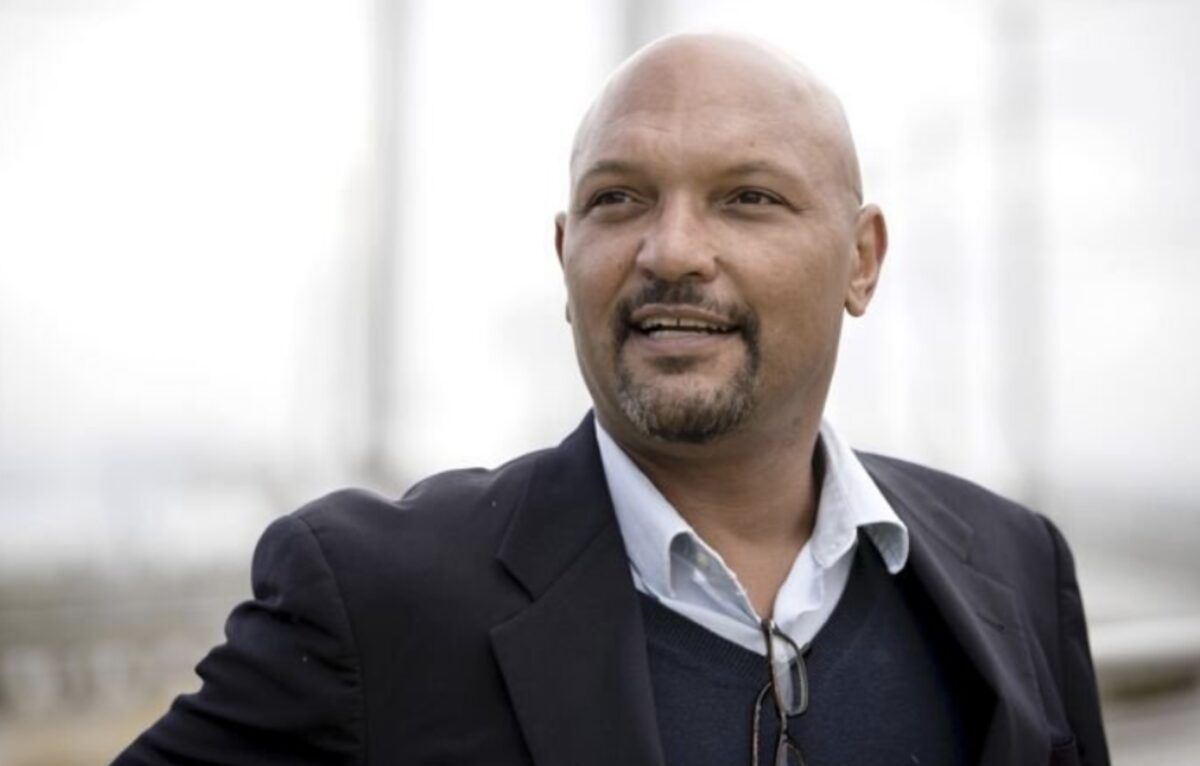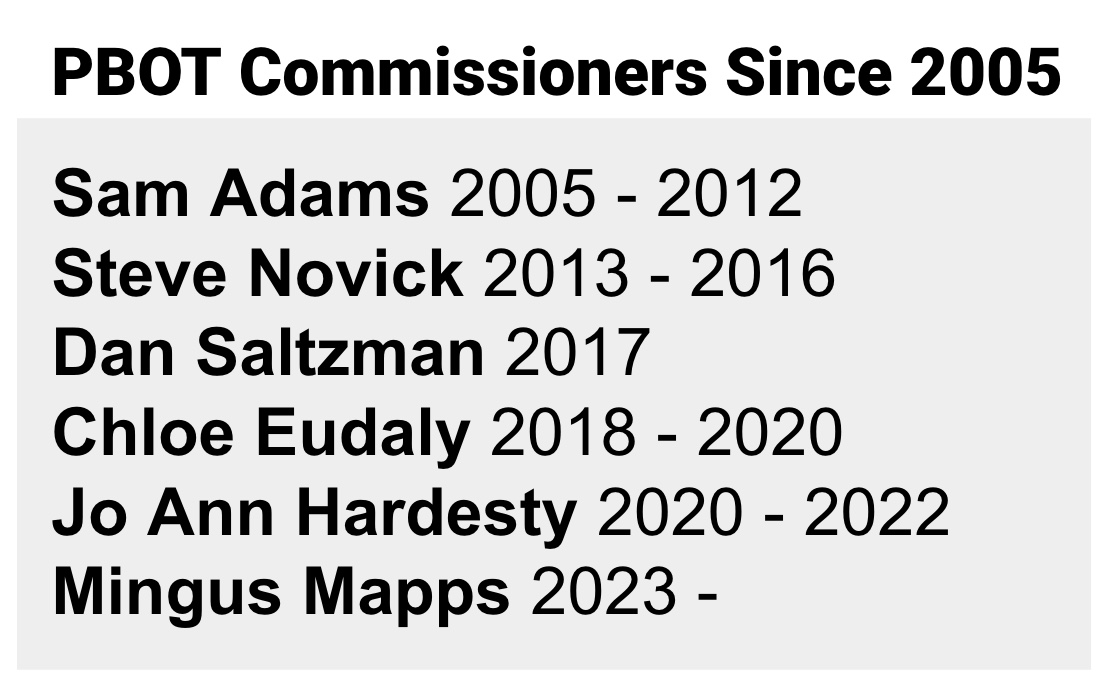This morning Portland Mayor Ted Wheeler made it official: Commissioner Mingus Mapps will take over control of the transportation bureau. Mapps inherits the duty from former Commissioner Jo Ann Hardesty.
The move to put Mapps in charge of PBOT (which won’t come a big surprise to BikePortland readers since we predicted it back in November) could be another sign that bicycling is on its way back to the front-and-center of local politics — a position it hasn’t enjoyed since about 2014 when our bike-to-work rate peaked at 7.2%. Portland has not had a PBOT commissioner who’s been both a strong champion for cycling and a regular rider themselves since 2012.
Mapps’ predecessor Hardesty, who oversaw the bureau from 2020 to 2022, didn’t own a bicycle. Former Commissioner Chloe Eudaly (2018-2020), who preceded Hardesty, was a regular bike rider too, but focused her two years at the helm on bus priority lanes instead of cycling. Before Eudaly there was Dan Saltzman (2017) and Steve Novick (2013-2016) — neither of whom ever rode bikes in the city. Former Mayor Sam Adams, who was in charge of PBOT from 2005 to 2012, was the last City Hall denizen who made cycling a focus of both his political and personal life.
In interviews with BikePortland, Mapps has said he’s a reluctant car driver who prefers to bike and take the bus. He also regularly rides around his southeast Portland neighborhood with his two young sons.
During his campaign in May 2020 Mapps told BikePortland he’s been a daily bike commuter since the 1980s. In that same interview he said he wanted to, “Help solve the paradox of declining bike commuting in Portland,” by implementing the city’s Bike Plan for 2030 and by working harder to, “Renew Portland’s cycling culture, with an emphasis on inclusion, equity, public health, public education, and fun.” And in an interview following his victory over Chloe Eudaly in November 2012, Mapps said he planned to ride his bike to City Hall everyday once it reopened post-Covid. “I’m an advocate for the bike community that’s for sure,” he said. “I think you have a healthier, happier city when you have more people cycling… The question is, how long do we take to get from here to there?”
A major issue looming over cycling for many Portlanders is the scofflaw, reckless behavior of many drivers and the dangers it poses to us all. A major difference between Mapps and Hardesty that could impact how people drive is their different approach to police reform and their role in enforcing traffic laws. Hardesty was the Portland Police Bureau’s strongest critic on City Council and famously attempted to reduce $18 million from their budget. That and other positions and statements about police, coupled with PBOT leadership that also distanced itself from the PPB, created a situation where the bureau in charge of the streets had an almost nonexist and arguably dysfunctional relationship with the bureau in charge of enforcing laws on them. This has led to a sense of lawlessness on our roads and a culture at the City of Portland where officials say they care about traffic safety, but the statistics say otherwise.
With Mapps at the helm — and with nearly three years since racial justice and police brutality protests upended Portland politics — that relationship between PBOT and the PPB is likely to thaw.
The Portland Police Association (the union that represents officers) endorsed Mapps and donated $15,000 to his election campaign. With Mapps, we have someone who is aware of the pitfalls of policing, but who is more than willing to work with them. As a Black man, Mapps told me in a past interview that he avoids driving because, “When I get behind the wheel of a car, I have fewer civil rights than everyone else.” Mapps agreed that the PPB needs real reform and he even went so far as to say if the conduct of some officers is, “a product of systemic racism, we need to fix it.” He would have voted against Hardesty’s police budget cut, but sees a future where PPB is smaller and much of low-level traffic enforcement is out of their hands.
In addition to managing transportation and being the de facto boss of PBOT Director Chris Warner (who’s now on his third commissioner), Mapps will also become the city’s representative on key regional and project-specific advisory bodies like Metro’s Joint Policy Advisory Committee on Transportation and the Interstate Bridge Replacement Program. He’s likely going to continue Hardesty’s efforts to strengthen the City of Portland’s support of State of Oregon’s controversial attempt to widen I-5 through the Rose Quarter.
Overall, Mapps being in charge of PBOT should help put transportation front and center at City Hall in a way we haven’t seen for many years. And Mapps won’t be alone: Former PBOT Director Tom Miller is working for new Commissioner Rene Gonzalez and former PBOT Commissioner Sam Adams in a top staffer in the Mayor’s office. If these three wanted to hatch a major transportation reform, they already have all the votes they’d need.
During my interview with Mapps in November 2020 I asked him about cycling’s decline in Portland. “[Former Portland Mayor] Sam [Adams] and I talked several times and he’s really proud of his bike legacy, which has kind of fallen off the map,” Mapps said. “So he’s been kind of poking and prodding me on that.”
Those pokes and prods might feel a bit different now the Mapps can actually do something about it.
— See the full list of bureau assignments here.




